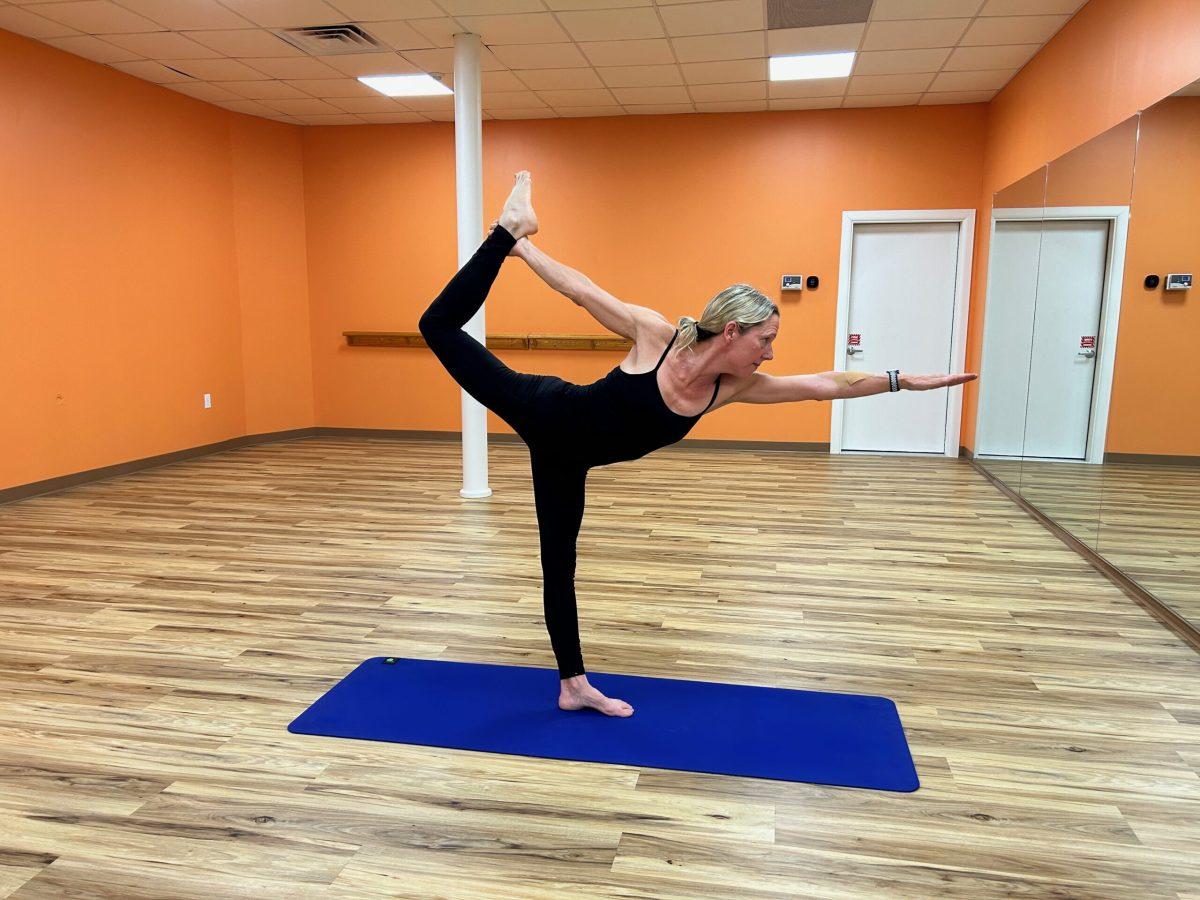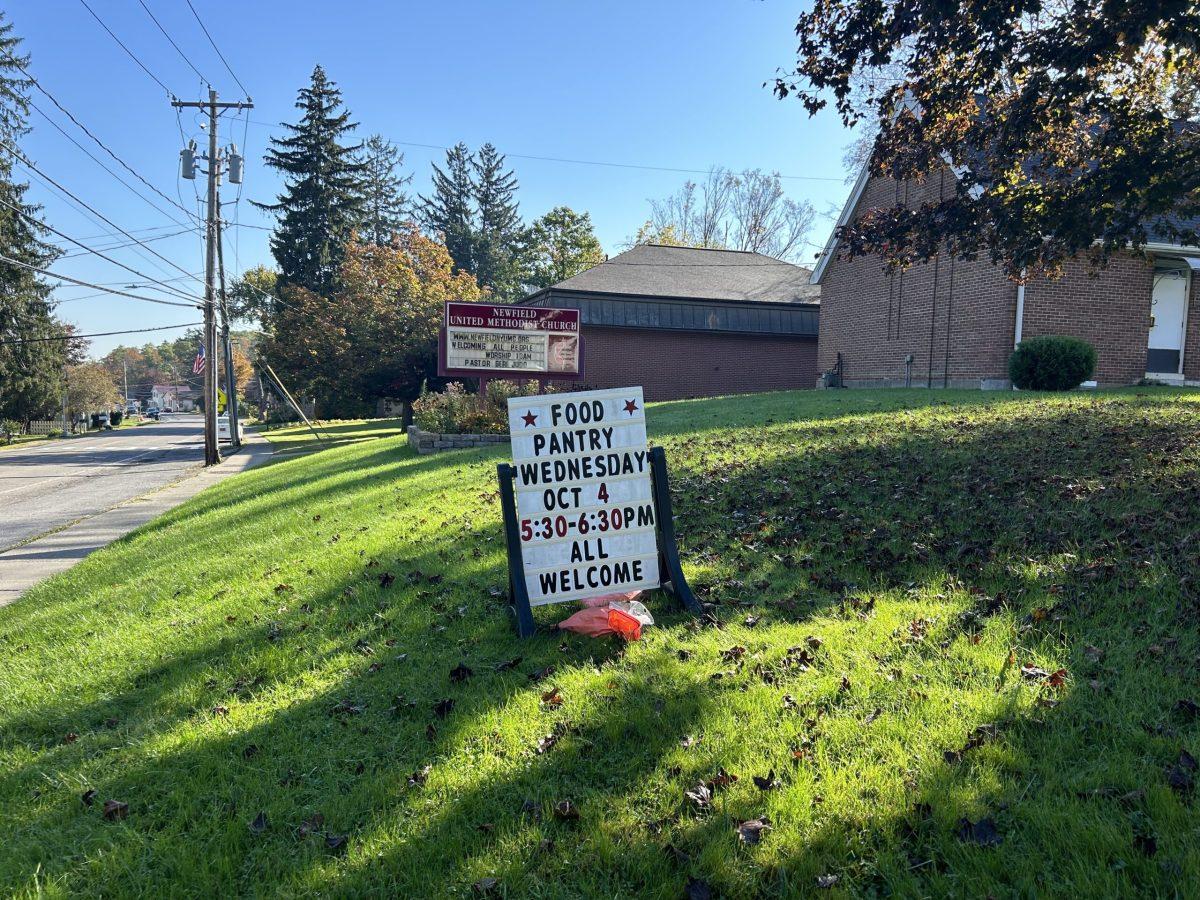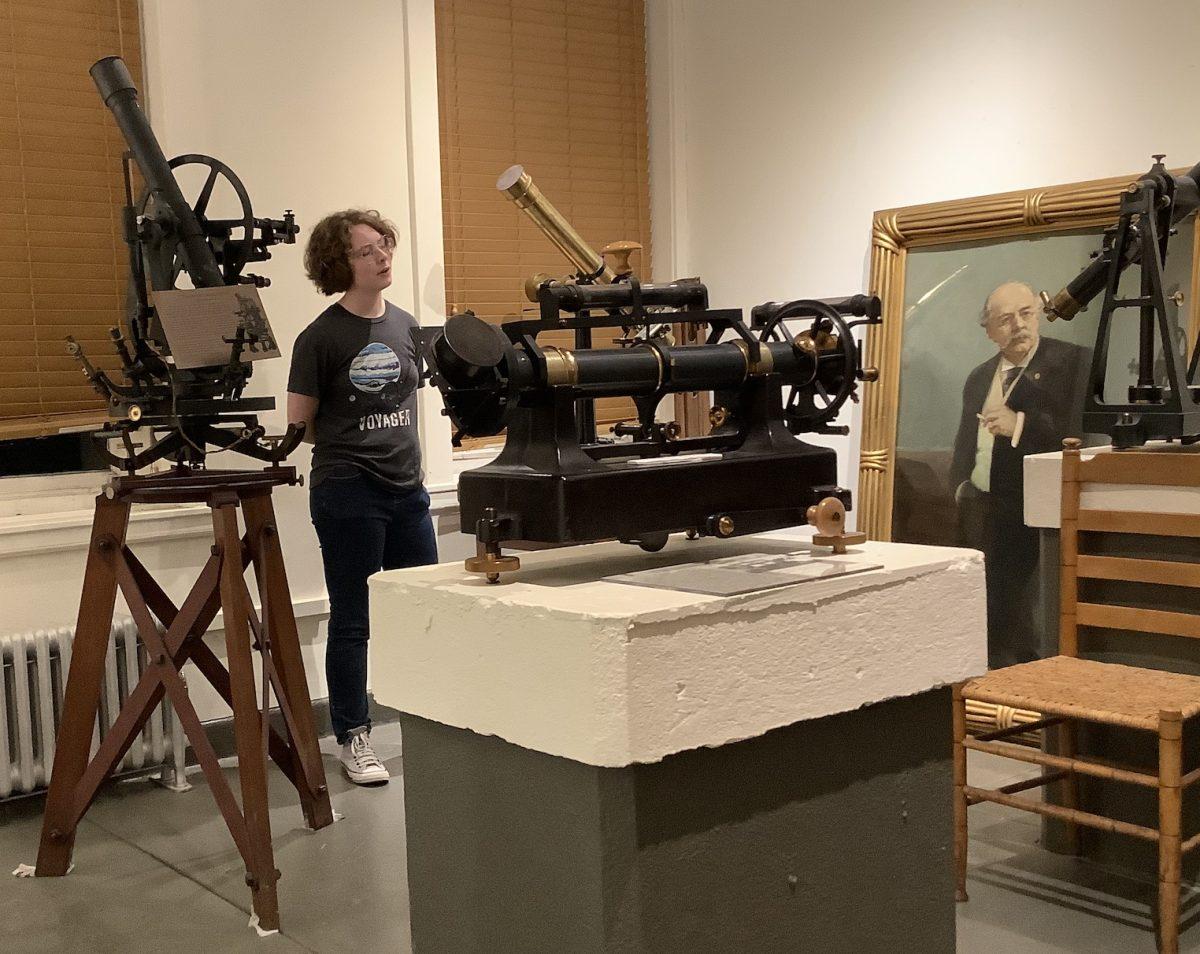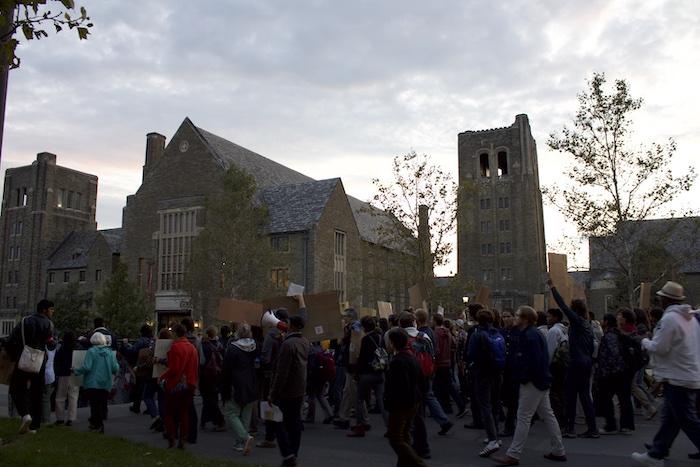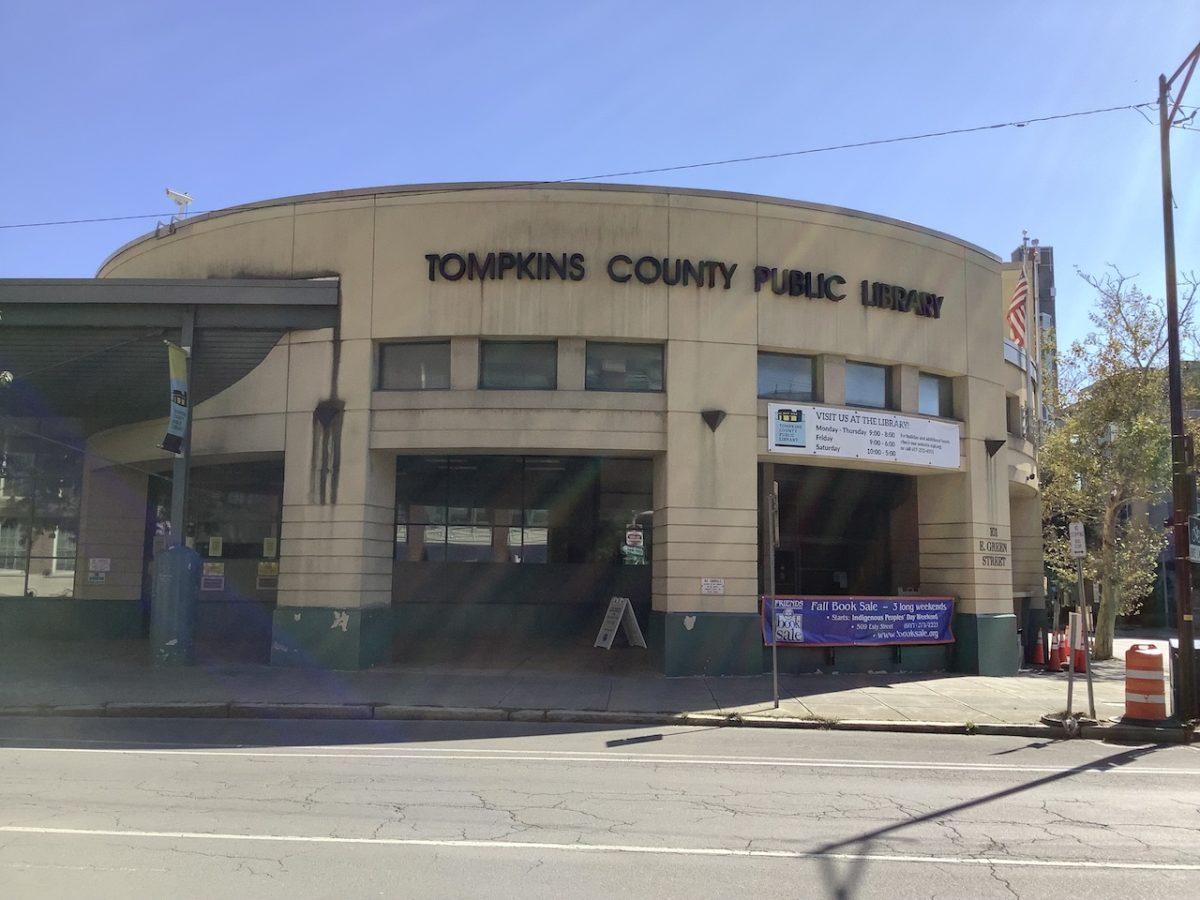The conversation series ‘Ask Big Questions’ returns to Ithaca College as “preventative medicine” to strengthen the sense of community both across campus and nationally.

Oct. 25, 2017 — Students slowly filed in to the lobby of Emerson Suites, a large event hall at Ithaca College, and checked in at a table cloaked in a white cloth, accented with signs that read “Ask Big Questions” in bold letters. They grabbed a blank name tag that had a random number written in the corner; their table assignment.

After adding their name and placing the tag on their chest, they proceeded into the large open room to find their table — one of dozens — and to meet the strangers that they would soon share deeply personal stories with. With ten minutes until the event was to officially begin, hushed apprehension quickly swelled into friendly chatter as the tables filled up, and the participants began to open up to the people sitting next to them.
They had all gathered on this Wednesday evening to ‘ask big questions’ of themselves and one another.
Ask Big Questions is a “campus conversation challenge” intended to build stronger communities on college campuses through organized discussions. It was launched in 2011 as a Hillel International initiative, but it has founding roots at Ithaca College. The series was co-founded and developed by an IC alumna, Sheila Katz ’05, who currently works as the Vice President of Student Engagement and Leadership at Hillel International.
“Preventative Medicine”
Lauren Goldberg, the Executive Director of Ithaca College Hillel, organized and facilitated the event on October 25, which is the first of a four-part series that she has planned for this academic year. The overarching question for this first session was, “Who is in your community?”
Goldberg said Ask Big Questions has been facilitated twice before on Ithaca College’s campus — both in response to “crisis situations,” around topics of sexual assault and relations with campus police. She said she was inspired to bring the series back to Ithaca College this year after reading the results of a recent campus climate survey, where 20 percent of respondents reported experiencing “exclusionary, intimidating or hostile conduct within the past year.”
This indicated to her that there needed to be more opportunities for members of the campus community to feel connected to one another. Goldberg saw an opportunity to be proactive, rather than reactive.

“What we decided with this series is that this is kind of the idea of preventative medicine, rather than that kind of responsive medicine. So its building a kind of way of speaking with each other on campus, and we’re hoping that through this long term program that we’re strengthening the connective tissue, so that when there are fissures, we don’t break. That we have that strength already built in.”
Eden Strachan ’21 said the event helped to remind people that they’re not alone in some of their toughest experiences. She said people at her table shared stories about individuals they knew who committed suicide “because of feeling left out and alone.”
“It was really nice to be able to connect with people and see that these kinds of things are happening across the country in different places,” Strachan said. “If we don’t have these conversations, if we don’t encourage this kind of dialogue, then things like this will continue to happen because people will feel like they’re alone and no one understands.”
“Now more than ever… these conversations need to be happening.”
With the inauguration of its new president just one week away, Ithaca College is at a pivotal transition point that presents an opportunity to shift the campus culture in a positive way. This opportunity coupled with our nation’s current highly divisive political climate means that Ask Big Questions is more important now than ever before, says Goldberg.
“I think now more than ever we’re recognizing that these conversations need to be happening,” Goldberg said. “The country feels fractured, there’s stark lines being drawn, people are polarized. And I think what Ask Big Questions gets at is if we take the time to build personal relationships that intentionally cross lines of difference and are focused on universal truths, that we will find that we can create dialogue across seemingly insurmountable differences.”
The next Ask Big Questions will be held November 8, which will include a Thanksgiving-style dinner and focus on the question, “How do we disagree?”

